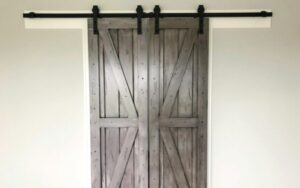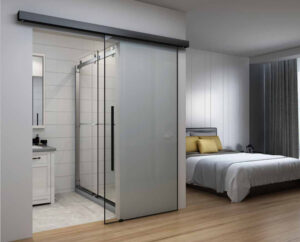When talking about shower doors, there are three main types: frame shower doors, semi-frameless shower doors, and frameless shower doors. All of them are glass shower doors. Although frame one is the most common and traditional one, the frameless shower door has become more and more popular due to its aesthetics.
This article will guide you to have a deep understanding of the differences between frameless and framed glass shower doors and focus on the characteristics of frameless glass shower doors. I hope this article can give you more useful information and help you to identify if your home is suitable for a frameless shower door.
Different Types of Shower Doors
There are three different types of shower doors that are widely used: traditional frame shower doors, semi-frameless shower doors, and frameless shower doors. Each door has its own characteristics.
Framed Shower Doors
Framed shower doors have a metal frame around the entire door and glass panels. The frame provides structural support and a track for the door to slide or swing open. Framed doors are typically the most affordable option.
- A full metal frame surrounds the glass panels
- Available in various frame finishes like chrome, brushed nickel, etc.
- Sliding or hinged door configurations
- Often have a lower header for additional stability
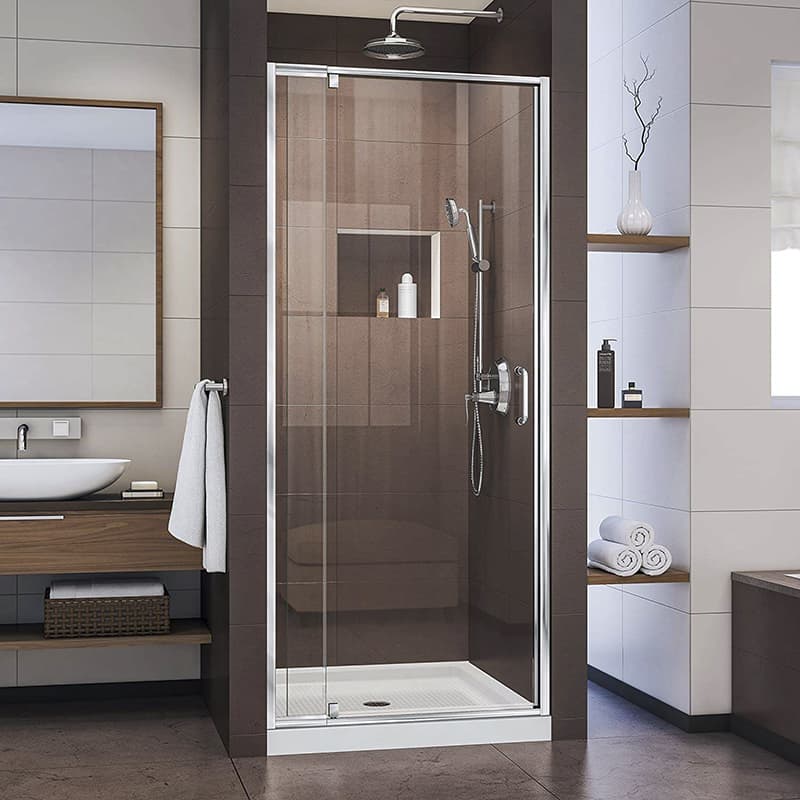
Semi-Frameless Shower Doors
Semi-frameless doors strike a balance between framed and frameless. They have a minimal metal frame at the top and/or bottom, but the actual door panels are frameless.
- Metal frame at the top (header) and/or bottom
- Frameless glass door panels for an open look
- Sliding or hinged door styles
- More affordable than a fully frameless
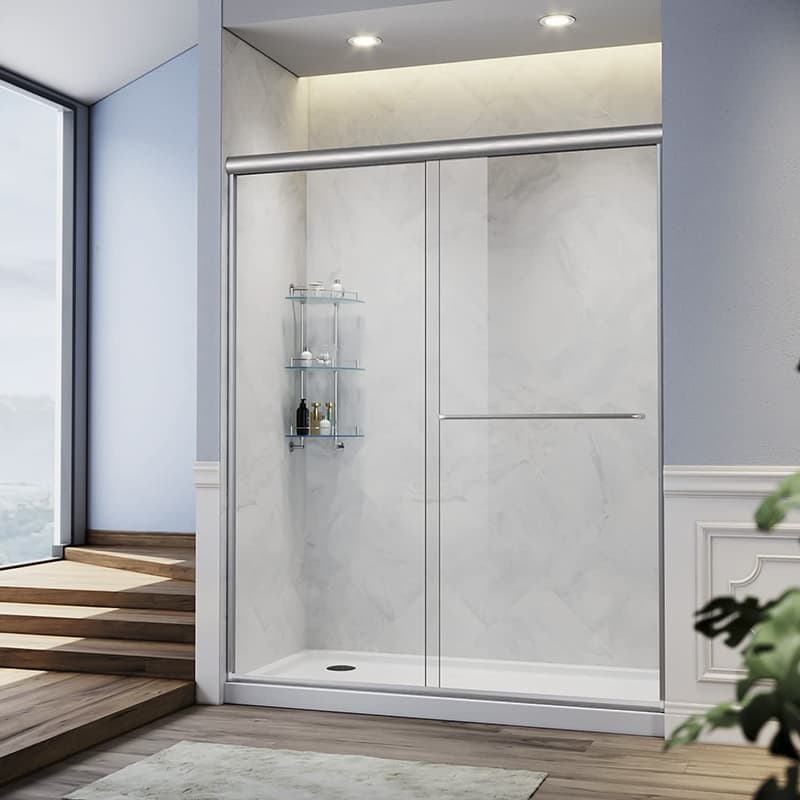
Frameless Shower Doors
Frameless shower doors have no metal framing around the glass panels, creating a sleek, modern look. The glass panels are thicker for structural integrity.
- No metal framing around the glass panels
- Uses thicker tempered glass (3/8″ to 1/2″) for stability
- be held to the walls by silicone caulking
- Sliding or hinged door configurations
- A most expensive option but very stylish
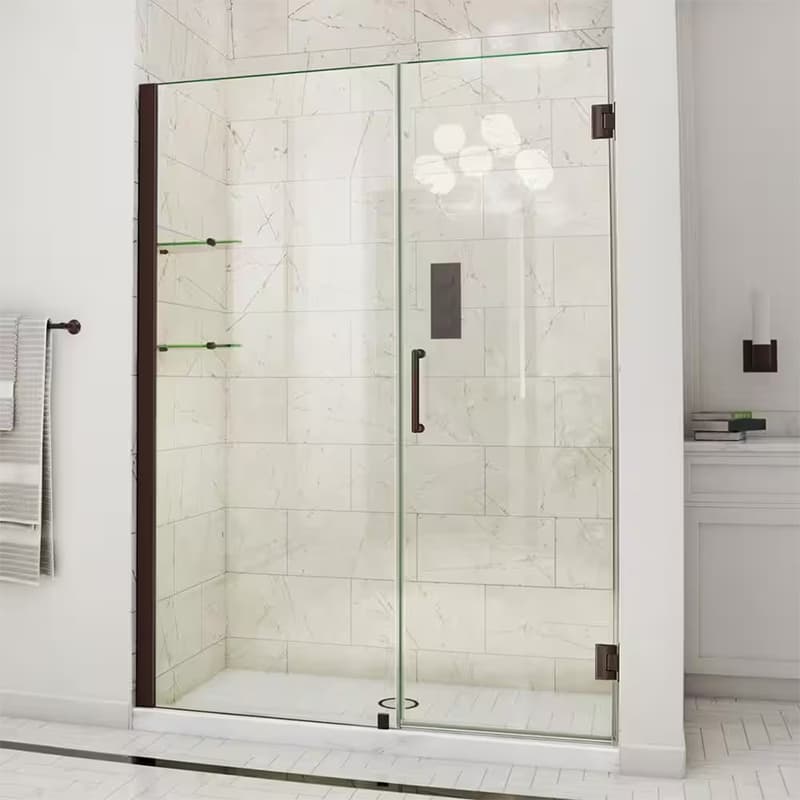
Different Types of Frameless Glass Shower Doors
There are several types of frameless shower doors to consider for your bathroom. Your choice is based on your room size, your own preferences, and the functions of different frameless doors.
Pivot Shower Doors
Pivot shower doors are hinged on one side and swing open, either inwards or outwards. They provide an open and seamless look to the shower area.
- Pros: Sleek and modern appearance, easy to open and close.
- Cons: Require enough space for the door to swing open, may not be suitable for smaller bathrooms.
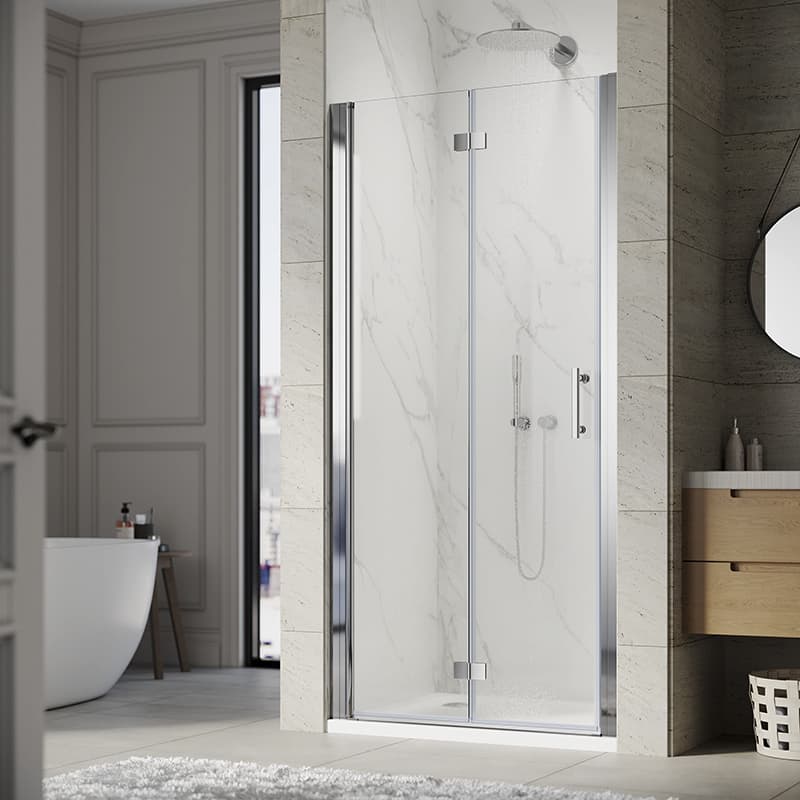
Sliding Shower Doors
Sliding shower doors, also known as “barn-style” doors, roll along a track at the top of the shower enclosure. They are space-efficient as they don’t require swing clearance.
- Pros: Save space, suitable for smaller bathrooms, modern look.
- Cons: The track at the top can collect dirt and water residue over time.
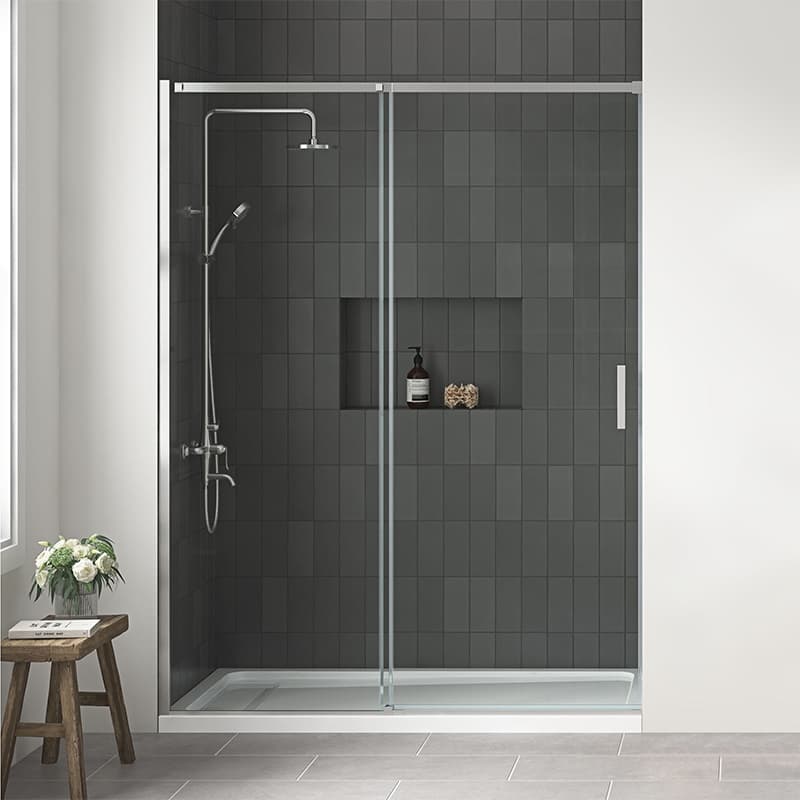
Hinged Shower Doors
Hinged shower doors are similar to pivot doors but are typically installed with a fixed glass panel, creating an enclosed shower area.
- Pros: Provide an enclosed shower space while maintaining a frameless look.
- Cons: Require enough space for the door to swing open.
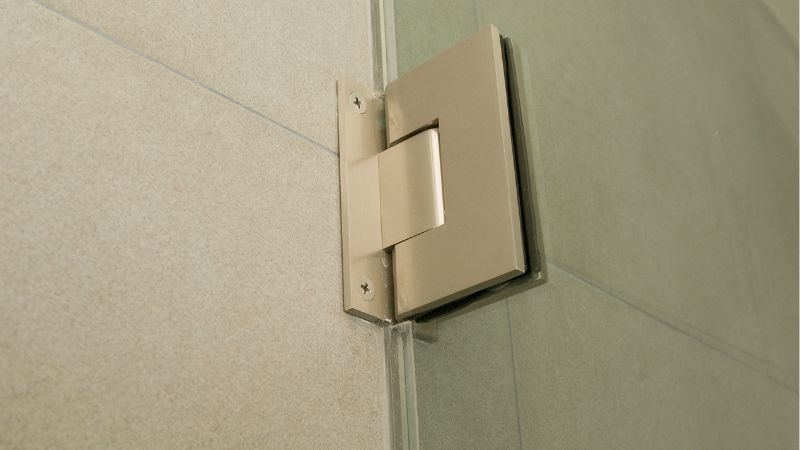
Benefits of Frameless Glass Shower Door
Easy to Clean
Without metal frames and tracks, there are fewer nooks and crannies for soap scum and mildew to accumulate, making frameless doors easier to clean. You only need to use a clean cloth to wipe the surface of the shower door regularly.
Can Design by Your Own Preference
Compared with traditional bathroom doors with door frames, frameless doors provide a wider range of personalization options. You can customize the door design you want according to your own preferences, whether it has hinges, an opening range, or a drain point.
Reduced Mold Risk
The lack of frames and seals minimizes areas where water can get trapped, reducing the risk of mold and mildew growth.
Durable
Frameless shower doors never use thinner glass than frame shower doors, but it shows higher duration and extends the longevity of the door.
Provide Wider Shower Enclosure Space
Frameless glass doors do not have any visual barriers that block the line of sight. This creates an uninterrupted, open feel and allows your eyes to perceive the full depth of the bathroom. Besides, frameless shower doors also generally have a greater range of movement than framed shower doors, providing more space for shower users.
Drawbacks of Frameless Shower Door

Potential for Damage and Safety Concerns
Frameless glass doors, due to their design, may lack the structural edge support provided by frames, making them more susceptible to accidental damage. If a door is not properly installed and damage, there’s an increased risk of shattering, which poses a safety concern for you and your family.
Long-term Maintenance Issues
Over time, your frameless glass door may require maintenance to address issues like mold or mildew, which thrive in damp environments typically found where these doors are used, for example, in the tiles cracks of bathrooms. Also, the absence of a protective frame can make them prone to corrosion, particularly the hinges and hardware that are more exposed to water and moisture.
Cost Burden
A frameless shower door is more expensive than a frame shower door. With higher requirements of producing and installing. The fees for both two parts are higher than for traditional frame shower doors. Generally, the cost for a frame shower door is only 400-850 dollars, while a frameless door is 700-1700 dollars. The cost will increase more if the size of your door is very huge.
Maintenance For a Frameless Glass Shower Door
Compared to framed shower doors and semi-frameless shower doors, frameless shower doors are more durable, but they still need careful care and regular maintenance. Both the surface of the shower door and enclosures need your attention.
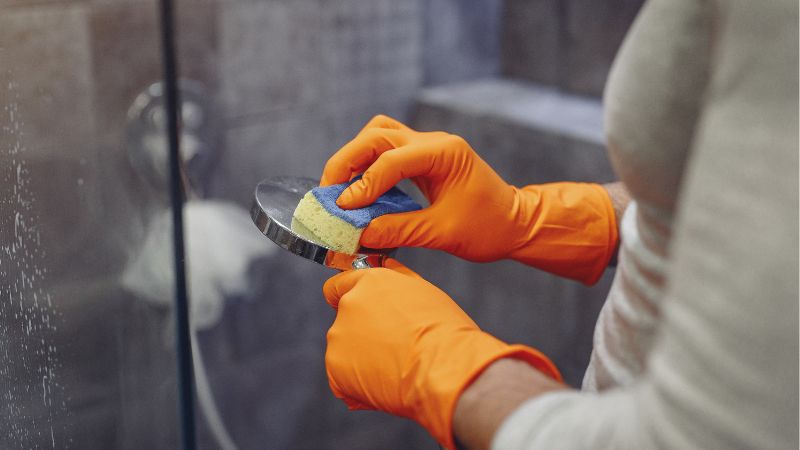
Cleaning the Shower Glass
- Clean the shower glass after every shower with a squeegee or microfiber cloth to prevent water spots and soap scum buildup.
- Use a daily shower spray made from a mixture of equal parts white vinegar and water. Spray it on after use and squeeze it off.
- For deeper cleaning, make a paste with baking soda and water. Gently scrub the paste onto the glass, let it sit for a few minutes, then rinse.
- Avoid harsh cleaners with ammonia or bleach as they can damage the glass and hardware over time.
Cleaning the Frameless Shower Enclosure
- Use an old toothbrush or soft cloth to gently clean around the hinges, clips, and seals where soap scum can build up.
- For any metal hardware, use a non-abrasive cleaner and dry thoroughly to prevent water spots and corrosion.
Maintaining Seals
- Check seals and sweeps regularly for any cracks, tears, or leaks. Replace damaged seals promptly.
- Apply a thin coating of petroleum jelly to the bottom door sweep to prolong its life.
- Only clean seals with mild soap and water, no harsh chemicals.


